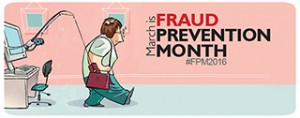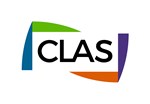Is that email a scam?
 Phishing is a general term for scam e-mails, text messages and websites designed to look like they come from well-known and trusted organizations in an attempt to collect sensitive information.
Phishing is a general term for scam e-mails, text messages and websites designed to look like they come from well-known and trusted organizations in an attempt to collect sensitive information.
How to sniff out a phishing scam:
- Phishing content is intended to trigger a quick reaction. It can use upsetting or exciting information, or demand an urgent response.
- Typically, phishing messages will ask you to “update”, “validate”, or “confirm” your account information to avoid dire consequences, online or over the phone.
- Often, the message or website includes official-looking logos and other identifying information taken directly from legitimate websites. Government, financial institutions and online payment services are common targets.
Preventive measures you should take:
- Watch out for e-mail or text messages with urgent requests for personal or financial information. Financial institutions normally don’t use e-mail to confirm an existing client’s information.
- Contact the organization at a telephone number from a credible source. Official website, back of your credit card, phone book or a bill.
- Never e-mail personal or financial information.
- Avoid embedded links in an e-mail claiming to bring you to a secure site.
- Look at a website’s address line in your browser.
- Regularly update your computer protection with anti-virus software, spyware filters, e-mail filters and firewall programs. Check out AV-Comparatives for reviews and reports of real-time protection antivirus programs.
- Regularly check your bank, credit and debit card statements to ensure that all transactions are legitimate.
Fraud Prevention Month Events
![]() People’s Law School is hosting an event on the Top 10 Scams of 2015 in Vancouver: March 29, from 12:00 – 1:00pm, at People’s Law School, 900 Howe Street, Vancouver, BC.
People’s Law School is hosting an event on the Top 10 Scams of 2015 in Vancouver: March 29, from 12:00 – 1:00pm, at People’s Law School, 900 Howe Street, Vancouver, BC.
 Canadian Anti-Fraud Centre is hosting a Twitter Chat on March 31 at 10am PST.
Canadian Anti-Fraud Centre is hosting a Twitter Chat on March 31 at 10am PST.
Follow CAFC @canantifraud to discuss their various resources on scams targeting businesses, telephone scams, scams targeting seniors/students, and vacation scams.
For more information:
Competition Bureau: Read more about Fraud Prevention Month.
BC RCMP: Information on email phishing, online fraud, fraudulent calls, police impersonators, rental scams, pin pad tampering, ATM skimming.
When I’m 64 – Scams (Video) by People’s Law School The When I’m 64 video series provides seniors with information about services, benefits, and resources available to them.
Fraud Prevention: Banks work hard to prevent their customers from becoming victims of any kind of financial fraud. The Canadian Bankers’ Association website offers tips on credit card fraud, debit card fraud, identity theft, phishing, vishing, and real estate fraud.
Government of Canada: The national list of Top 10 Scams was unveiled at news conferences in Vancouver and Montreal for Fraud Prevention Month. It was compiled by Better Business Bureaus in nine provinces with input from the Quebec-based Option Consommateurs as well as the Competition Bureau.








 Notice – BC Government URLs
Notice – BC Government URLs
